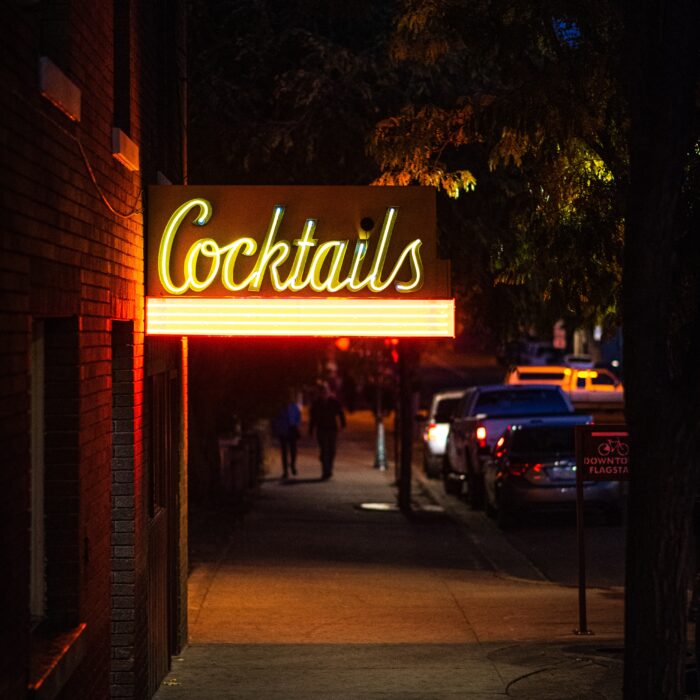You have no items in your cart. Want to get some nice things?
Go shopping
I do not get paid enough for this shit. It is always so oily, so oily but so rough. Every Saturday morning – same time each week – before my wife wakes up to read her Bible, I scurry on to the toilet with gritted teeth and clenched fist, wet as a fish in my own sweat. I regret the night before but suffering is never regret alone, it is a duet of regret and gratitude. I make about twenty million Naira a year, so every time the shit’s roughness pierces my anus and I have to clean up the oily mess moments after, I make a whispered recitation of gratitude for all the things my twenty million affords me, to remind myself why I need to persevere through another Saturday’s shit.
Rent in Ikoyi; my work and all my friends were on the Island so I had to be there as well. My wife’s monthly allowances; I wanted a trophy wife and she was happy to play the part, for a price. My wife’s mother’s monthly allowances; because my father-in-law had died and the alternative was to have her move in with us. My daughter’s school fees and allowances; her mother insists she goes to school in England because the children of all her friends from Ikoyi club go to school in England. My wife and daughter’s annual holiday; I used to travel with them a long time ago, till I decided my travel expenses would be better used servicing the car loans I take to replace the family cars every three years. My girlfriend’s monthly allowances; I work so hard to cater for my family who only ever complain some more. She is my reward to myself, my “thank you”. There is never any change left of the twenty million at the end of the year. I have been on this pay package for the last five years but still have not saved enough to buy my own land. If I retire today, all I will have to my name are expensive furniture, expensive car loans and the Yusuf Grillo painting titled “The Duet”. So even though the shit is never easy, it is always worth it.
It was the bottle of rosé I drank every Friday night that made me shit. Barrister had also confessed to me that the rosé made him shit as soon as he got home, it did not even wait till morning and allow him a good night’s rest. Triple chief had not said anything yet but I suspect he had it worse. He did not come out with us every Friday, but when he did, he never made it for squash at Ikoyi club on Saturday morning. The shit, as well as the rosé, was part of the job – meeting with the company executives who came in from Abuja every weekend to discuss milestones of the past week and deliverables for the next over dinner. The Chief executive ordered a bottle of rosé with dinner every single time. Barrister once ordered a separate bottle of champagne and returned on Monday to a query on his desk for “diverting company funds to alleviate the expenses of personal extravagances”. He threatened to shove a crate of rosé down the throat of the HR woman and then line her toilet paper with dried pepper. But the next Friday he drank his glass of rosé, like the rest of us, with the largest smile.
Unlike Barrister, I liked the HR woman. We were both from Ikeduru and so she occasionally brought ukwa and ofe nsala to the office for me. My wife was core Yoruba, her ewedu and gbegiri were worthy of Oduduwa himself but she knew nothing of Igbo delicacies. Every time she served me pounded yam she bragged about how her family was from a long line of Obatala worshippers but still she could not make simple white soup. I enjoyed her Yoruba meals at home and the HR woman’s Igbo meals at the office so there was no conflict of interest. The HR woman was the one that had suggested the Yusuf Grillo painting be gifted to me when I celebrated my twentieth year at the company a few years ago. The oil-on-board painting shows two instrumentalists jamming side by side with their heads leaned towards the other in musical dialogue. Each is dressed and posed just like the other, and in that moment of creative unison where components align to become a singular artistic representation, each is the other. The portrayal was inspired by Grillo’s childhood, which he spent in the Brazilian Quarters in Lagos watching live bands perform at birthday and marriage celebrations. And the painting had the same time-travelling effect on the HR woman. She said it reminded her of my father. Till his death he was the most famous musician in all of Ikeduru and every Christmas when she travelled from Lagos with her family as a child, she would watch him play his trumpet at my village square. She went on and on about my father as if I did not know him first hand. The person who rears the goat and the person who eats the goat-meat peppersoup can never agree on what goat smells like, even though both are always right.
My father was as poor as he was famous and his fame was never nearly enough to cater for us; round of applauses was not tenable in the market, free gourds of palm wine could not be bartered for school textbooks. But I liked the painting because it reminded me of my father as well, and my father reminded me of why I needed to work hard enough so I would never refuse my child anything. I hung the painting on the wall in the living room, opposite the armchair I collapsed into after returning from work every evening and prised myself up from to head out for work every morning. I stared into it when I could not find the will to go on another day; in it I saw my father’s failures and remembered my daughter’s potential.
My daughter was the sole reason I put myself through all of this. She reminded me of my mother, in looks – full cheekbones and fuller lips making for the fullest smile – and in verbiage – flapping her arms to propel the words out of herself only to eventually clatter into a stutter. In spite of her stutter, my mother was the shrewdest haggler in all of Ikeduru. She would travel to Aba and Enugu once a week and to Onitsha every fortnight to get the best bargains for anything at all, to sell at a profit when she returned to the village. And when the past Igwe decided to buy the first bicycle in our village, she was the one chosen to go to Port Harcourt to strike the deal. My mother always told me she knew she would have achieved more if she was born a male child and her father sent her to school. So she gave me the best of what she had always wished for herself and sang praise songs in Igbo to a stutter when I graduated with a first-class degree in business from the University of Nigeria at Nsukka.
I had also sworn to give my child the best of what I wished for myself; provision, support, opportunities. Education alone was not enough anymore. Watching my school mates from rich homes get plugged into oil jobs while I hawked my CV for years taught me as much. It is why I slaved twenty years in this brain-grating job, why I drank rosé and purged every weekend, to make my daughter’s ascent of the social ladder less tedious, less a pain in the ass. But children of nowadays, after paying her tuition for her first year in Kent for business the damned child sent me a WhatsApp message saying she transferred to Art because she had to follow her heart, she did not even have the courtesy to telephone. Damned child with the damned genes of her damned grandfather, I placed her on my shoulder so she could reach further and she shit on my head. I would give anything to be given what she had scorned.
I cleaned up the oily mess and sprayed the bathroom with flowery kini my wife bought and went back to bed. There was an envelope on the pillow and I knew it must have been the damned child; an invitation to her first solo exhibition opening this evening. Suffering is a duet of expressions – regret and gratitude; I tore up the invitation and cursed the path she had chosen then muttered a silent prayer of thanks, after all she was finding success at it.
*
The passion of nature and the efficiency of the machine are the great duet of creation. Instances abound around my bedroom; Jhene Aiko’s soft voice and the softer electronic percussion on Living Room Flow flowing from my speakers, my even softer fingers inside my vagina and the softest pulsations of my vibrator on my clit. Synchronization and chaos is just as great a duet, like the rhythmic insertion of my finger and the circling of my vibrator in sync with the slow tempo of Jhene’s song while I orgasm at the chaotic climax, thighs and tonsils quaking. The arch in my back relaxed as the pleasure I had created reached completion. I wondered how God felt resting on the seventh day after creation.
I bought my first vibrator a week after I moved to Kent for university. Before then I would buy porn from the aboki that sold mixed music CDs in front of the school and then use my fingers. My thumb was Manuel Ferrara, my index finger was Prince Yahshua and my two longest fingers working together was Lexington Steele. I am not sure if money could buy happiness but it had always bought me orgasms, close enough. One thing money never did barter for me was affection. If that transaction was tenable, my father and I would be like God and saint. But God and atheist was a better fit to our description, I stopped believing in him a long time ago. He had always been willing to spend money – on the best schools, food, clothes and toys – but he would not spend time unless it was extremely necessary or convenient – when he had to show you off to his friends or had nothing else to do at all. It was exactly the same way you would show affection to a pet dog.
Like a well-chained dog, I sat muzzled. But like a well-fed dog, I sat content. I did not break off the leash of his fake affection early enough and so for the longest time I really believed that was all there was to love. So it was easy for me to believe my first boyfriend loved me when he bought flowers and a cake because he missed spending Valentine’s day with me. I knew better when I found out he had spent the day with my cousin’s girlfriend’s best friend. But I obviously did not know enough to differentiate between love and lust when my second boyfriend called me only once a week all through our relationship – when he returned from the University of Lagos campus on Friday evenings and wanted to have sex before his parents returned from home. I knew better when I had my first pregnancy scare and he told me to forget his name and address the same way I forgot to take the morning-after pill. By my third boyfriend, I had zero expectations and was willing to settle for anyone who replied to text messages quickly because I was sure nothing could buy affection. It came freely but, somehow, never to me.
Money could not buy affection, but it afforded me beautiful art. Jhene Aiko’s voice had swooned into the next track and Lexington Steele was still creamy when I lit the marijuana in the pipe by my bedside shelf, all the while my eyes remaining transfixed on my favourite work of art – Eloghosa Osunde’s “God’s voice was a gurgle, thick and ripping in our ear”. The digitally altered photograph captured the distorted figures of two children locked in fearful embrace in front of a simple home that leaked the secret of the eerie darkness haunting the boys through an open door and window. There was a vague form of someone personifying the haunting darkness inside the house by the window. It had no face, but when I looked at the photograph I kept seeing my father in the window. I was one of the distorted children and I was fearfully embracing the other child, somebody’s child, anybody’s child at all who would provide solace from the haunting darkness.
I stared at the photograph and the released sails of my thoughts caught the wind of intimate fantasies. I imagined an embrace, with somebody, forged by love and not fear. The great duet of motivation; love and fear, of the things we want so desperately and the things we do not want just as desperately. It was why I started creating art myself. I made beaded portraits because I wanted to be wanted, to be kept and not just used to pander to fleeting curiosities, and if not me as a person then pieces of me I created. I painted because I was desperately afraid I would never be accepted by anyone else for anything else.
There was a way people looked at things they wanted to keep. The desperation of the craving is always so intense that the eyes alone cannot contain it. It spreads to the mouth and elicits a curious smile. It extends to the entire skin and permeates a glow. It was the way I looked at Eloghosa Osunde’s photograph the first time I saw it on the wall at Rele Gallery in Onikan. It was the way my father always looked at my mother through all the years of their marriage. The curious smile was evident in their wedding photograph taken all those years ago, framed and hung in our sitting room. The glowing skin is evident every night when he returns from work into her arms.
I wanted to be wanted as my mother was wanted, so for my first solo exhibition I recreated my mother. I was as dark as she was. So selecting the right colour of beads for her skin tone came naturally to me after years and years of creating beaded portraits of myself. But unlike her, I was hideously pimple-faced and my body was barely making any attempt to fill up the same oversized set of clothes I had been using since secondary school. Her face shone in the light and the silhouette of her body was even more pronounced on dimly lit evenings. I made portraits of her in places I had always wished to be. My favourite from the collection was the one of her in the club I frequented at university, where I spent entire nights smoking by the bar and chair-dancing in unnoticed solitude. In that portrait my mother was whining in the middle of the room under the ever-changing spectrums of light and ever focused adulation of all around. I knew with certainty that if I was as she was, I would have been noticed more, would most likely have been loved more and maybe I would have even been wanted enough to be kept more.
But with all the beauty my mother commanded, she commanded little else. She neither said nor did much. She let her friends from Ikoyi club sway her mind in one direction and then let my father sway her in another. And just when you thought her roots were settled from the windstorm of intimidations, my grandmother would arrive in a gust of gusto and sway her again. If I was as beautiful as she was, if I was wanted enough to be offered the world, I would take it all and never let it go. I would take all the attention given and turn it into fame. I would make wealth and praise out of gifts and compliments. But I was ugly, fortunately gifted but ugly nonetheless, so I had to earn all I got and be so often cheated from what I deserved. While my mother embodied the great duet of mediocrity; having enough to get everything, but not doing enough to get anything. I finally dragged myself out of bed and walked into the shower. I had an appointment with a journalist who wanted to do a profile on me before my exhibition and I was not beautiful enough to have my smile compensate for being late.
*
Saturday is the best day of the week because Saturday is my market day and the market is my escape. It is fullest on Saturdays, just how I like it, just how it had always been since my childhood. The same live animals in small cages, the same butchered meat stacked on tables, the same grains in bowls and buckets, the same vegetables on trays and the same series of scents serenading the senses. Only the people ever changed and the different people did the same things. Different half-naked children that always splashed from one shallow puddle to the next, different elderly vendors always sprawled on mats on the floor draped in yards of Ankara by their goods, different younger vendors always assisting the elderly with the cutting and counting, different customers always haggling any price tendered for fear of being cheated, different area boys always hanging around to carry heavy loads, pick heavy pockets, whistle at heavy women and always smoking weed if there was nothing heavy to attend to.
I had never smoked weed but I grew up around a market so I knew what it smelled like. I knew because weed was by nature out of place, so was its smell and that made it easy to recognize. I recognized its smell when it floated from my daughter’s hair in little, life-giving amounts – like pollen from a flower – as I oiled her scalp and knotted her hair into twists on Saturday evenings. Just as I recognized its smell when it dropped from the beard of my first lover – like low-hanging fruits from brittle branches – while my head lay on his chest on the mattress at the back of his brother’s market stall, all those many years ago. He smoked a lot like the other area boys, but he was a lot gentler. His palms were softer so I did not mind that he held onto my arm and begged me to listen to what he had to say as I went past the market running errands for my mother. His smile was broader and more beautiful so I did not mind when he spoke to me for hours, declaring love with cockroach-in-cupboard metaphors and Obesere lyrics.
It was twenty years ago that last happened, on the night before my wedding to my husband. If my first lover had known I was to get married the next day, he may have never let me out of his arms that night. If he had known the virginity I said I was keeping for him till he could afford to wed me had already been given to my husband a few months earlier, he would have fucked my soul out of me like he promised he would when my virginity was finally out of the way. But he did not need to, because I lost my soul when I broke his heart that night. I was a liar, I cheated, and the only way to get out of a lie is with a bigger lie because the truth never sets you free, it locks you up in a cage of guilt and indebtedness. So on that final evening, as we lay on his mattress in the dark feeding each other bread and akara, I ranted about how I hated my life, how I hated that I had been running errands for my mother since I left secondary school three years ago, running errands for her little frozen-fish business so I would have enough money to write jamb. But a wave of misfortune always arose from the still tides of best-laid plans, eroding every last bit of our savings, pushing back our shoreline of hope further and further each year. He patted my hair to call me down, it is what he always did when my mood was ruffled. I cried and pushed him away. Then I berated him and blamed him for my situation; if he loved me he would provide for me, he would move Heaven and earth to make my dreams come true. His throat dried up and he stammered. I argued, convincing him that he did not love me. It was the duet of falsehood; drama to confuse and then revision of facts. And then I left, telling him as he chased me into the darkness, that he should not come looking for me till he became a man.
My husband was a youth corper living in the same compound as my mother and I. He taught at a school and did not make as much money as my first lover at the time, but my mother said he was going far in life because he was educated. He was small and timid, not as assertive or good looking as my first lover, but my mother said that would make him a good husband because you do not want a husband that cannot be controlled, a husband that your in-laws cannot come and beat up if he ever slaps you. She seduced me to seduce him, to ask him about the books he read by the verandah before sunset, to take little plates of food to him on the days he returned home late, to lean into him and let all my womanhood brush against all of his manhood when I was inside his flat. And the day he succumbed and fucked me, I sat on top of him as my mother had warned – riding through the searing pain between my thighs was the cost of securing our future, my mother and I – till he moaned and then squealed, not relaxing my muscles till his were relaxed, not getting up till his penis was limp inside of me. I was not lucky that first time, but the next month I missed my period. I also was not lucky the first time I told him I was pregnant, he slapped himself, slapped me, then walked away. But by the next month he had agreed to marry me.
My daughter loved me but her love was incomplete. It was almost out of a sense of duty, like the way I loved my husband. There was some spite in her eyes when she looked at me, almost desperate. Maybe children born out of desperation are made to be desperate, the way children born out of intense love are made to love intensely. She was already growing to be a different woman than I was – if nothing else, she did not listen to me as much as I listened to my mother. Sometimes I feel guilty for not guiding her enough, I fear she might end up how I might have ended up if my mother did not force me away from my first lover. But she behaves like a man, like her father. She keeps to herself and has no regard for anyone. She feels she does not have to bend her will or make sacrifices. She did not let her father bend her will into studying business in university the way he had bent my will into studying education and not law because a woman was not meant to have a serious profession that would keep her from home. She travelled to Abeokuta for a book fair and to Aba for a tour of the war museum, refusing to let him bend her will into being a kitchen-ridden wife-material just as he had done to me when he tore up my first CV I showed him after I finished school.
To be honest, I hated my husband as much as I loved him; loved him for what he had given me and hated him for what he had taken away from me, just as I knew my daughter loved me for all I was and hated me for all I could not be, just as I knew my husband loved my daughter for all he had made her to be yet hated her for all he could not make her to be. It was the duet of envy; a reason to love is almost always a reason to hate.

About Nnamdi Ehirim
Nnamdi Ehirim is a Nigerian writer based in Lagos and Madrid. His debut novel, Prince of Monkeys, is forthcoming from Counterpoint Press in April 2019.





Beautiful write up. I was transferred into the world of this little family. Seeing, tasting, and imbibing the very experienceds and journeys that defined their characters with experiences that I can relate to.
In all, wonderfully written